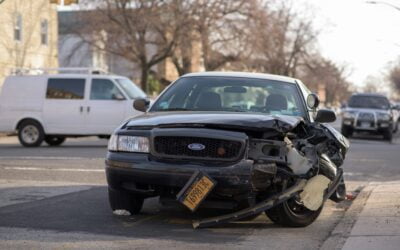What You Need to Know About Your Rights to Compensation
If you’ve been involved in a car accident in Nevada, you may wonder about your compensation eligibility. Nevada’s laws regarding car accident compensation can be complex, but understanding your rights is essential. This guide will help you determine if you might be eligible for compensation and what factors influence your claim. A Nevada car accident attorney can provide personalized advice based on the specifics of your situation.
Key Takeaways:
- In Nevada, you may be eligible for compensation after a car accident if you’re less than 51% at fault. You must have injuries or property damage from the accident. There are time limits for filing claims: 2 years for injuries and 3 years for property damage. The person who caused the accident is usually responsible for paying damages.
- If eligible, you may receive money for medical bills and lost wages. You could also get compensation for property damage, pain and suffering, and loss of enjoyment of life. The amount you receive depends on how severe your injuries are and how the accident has affected your life. Insurance coverage also plays a role in how much compensation you can get.
- To determine if you’re eligible for compensation, document the accident and get medical help. Keep all records related to the accident and understand your insurance coverage. Consider who was at fault and know the time limits for filing claims. In complex cases or if you’re unsure, talking to a car accident attorney for guidance might be helpful.
Factors Determining Eligibility for Compensation
Several key factors determine whether you’re eligible for compensation after a Nevada car accident:
- Fault: Nevada is an “at-fault” state, meaning the person responsible for causing the accident is liable for damages. If another driver was at fault, you may be eligible for compensation.
- Degree of Fault: Nevada follows a “modified comparative negligence” rule. You can seek compensation if you’re less than 51% at fault for the accident. Your percentage of fault will reduce your compensation.
- Injuries or Damages: To be eligible for compensation, you must have suffered injuries or property damage due to the accident.
- Time Limits: Nevada has specific time limits, called “statutes of limitations,” for filing car accident claims. For personal injury, you have two years from the date of the accident. For property damage, the limit is three years.
Types of Compensation You May Be Eligible For
If you meet the eligibility criteria, you may be entitled to various types of compensation:
- Medical Expenses: This covers current and future medical costs related to your accident injuries.
- Lost Wages: If your injuries caused you to miss work, you may be compensated for lost income.
- Property Damage: This includes repairs or replacement of your vehicle and other damaged property.
- Pain and Suffering: You may be eligible for compensation for physical pain and emotional distress caused by the accident.
- Loss of Enjoyment of Life: If your injuries have significantly impacted your daily activities, you might be eligible for this compensation.
The compensation you’re eligible for depends on the severity of your injuries, the impact on your life, and the available insurance coverage.
Steps to Determine Your Eligibility
Determining your eligibility for compensation after a car accident involves several essential steps. By following these steps carefully, you can gather the necessary information and evidence to support your claim. Here’s what you need to do to assess your eligibility for compensation:
- Document the Accident: Gather all relevant information, including police reports, photos of the accident scene, and witness statements.
- Seek Medical Attention: Even if you feel fine, get a medical evaluation. Some injuries may not be immediately apparent, and medical records are essential for your claim.
- Keep Records: Maintain a file of all accident-related documents, including medical bills, repair estimates, and correspondence with insurance companies.
- Understand Insurance Coverage: Review your insurance policy and the other driver’s policy to understand the available coverage.
- Consider Fault: Assess the circumstances of the accident to determine who was at fault. Remember, you may still be eligible for partial compensation even if you were partly at fault.
- Be Aware of Time Limits: Remember the statute limitations for filing your claim.
- Consult a Nevada Car Accident Attorney: A personal injury attorney can evaluate your case and provide a professional opinion on your eligibility for compensation.
Factors That May Affect Your Eligibility
Several factors come into play when determining your eligibility for compensation after a Nevada car accident. These factors can significantly impact your eligibility and the amount of compensation you might receive. Understanding these factors can help you better assess your situation and prepare for the claims process. Let’s explore the key elements that may affect your eligibility:
- Severity of Injuries: More severe injuries typically result in higher compensation.
- Insurance Coverage: The amount of available insurance coverage can limit your compensation.
- Evidence: Strong evidence supporting your claim can increase your chances of receiving compensation.
- Your Actions After the Accident: Following proper procedures, such as reporting the accident and seeking medical attention, can affect your eligibility.
- Shared Fault: Your compensation will be reduced proportionately if found partially at fault.
When to Seek Legal Help
After a car accident, you can handle your claim independently or seek professional legal assistance. Many people successfully resolve minor accident claims without hiring a lawyer. However, some situations can be complex and may benefit from legal skills. Understanding when to seek legal help can increase your chances of receiving fair compensation. Here are some circumstances where consulting with a Nevada car accident attorney might be beneficial:
- You’ve suffered severe injuries.
- The other driver denies fault, or their insurance company is disputing liability.
- The insurance company is offering a settlement that seems too low.
- You’re unsure about your eligibility for compensation.
A personal injury attorney can provide valuable guidance, handle negotiations with insurance companies, and help ensure you receive fair compensation if you’re eligible.
Get Help Determining Your Eligibility for Compensation
Determining your eligibility for compensation after a Nevada car accident can be complex. Each case is unique, and various factors can influence your claim. If you’re unsure about your eligibility or want to ensure you receive fair compensation, don’t hesitate to seek legal help.
Joey Gilbert & Associates is here to assist you. Our Nevada car accident attorneys team can evaluate your case, determine your eligibility for compensation, and guide you through the claims process. We’ll work tirelessly to protect your rights and help you secure the compensation you deserve.
Our practice extends beyond car accident cases. Whether you’re facing a DUI charge, navigating family law issues, dealing with immigration matters, or needing assistance in other legal areas, our team is equipped to help. We pride ourselves on providing legal services to meet various client needs.
Contact Joey Gilbert & Associates today for a free consultation. Let us help you understand your rights and options for compensation following your Nevada car accident or assist you with any other legal challenges you may be facing. Our goal is to provide you with the capable legal representation you need, no matter the complexity of your case.




